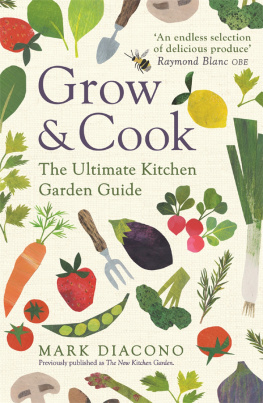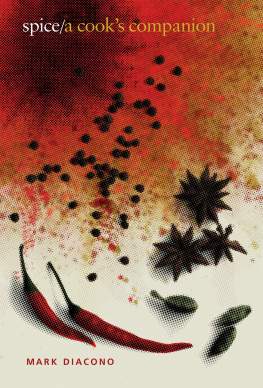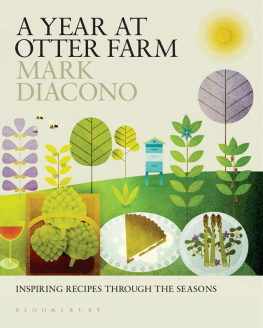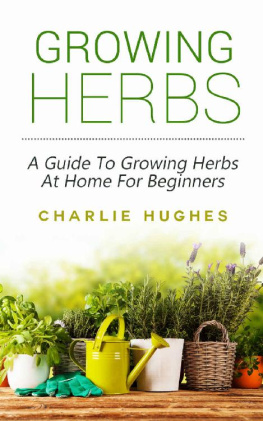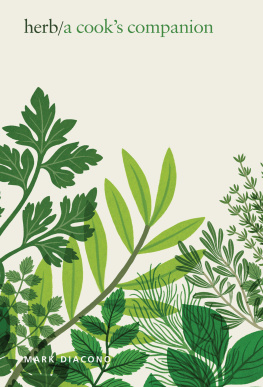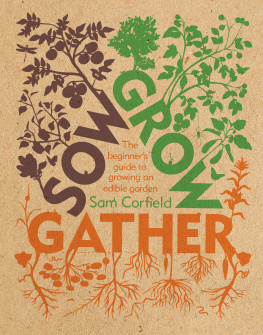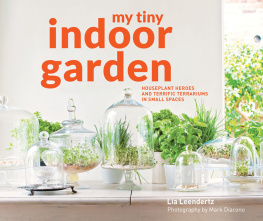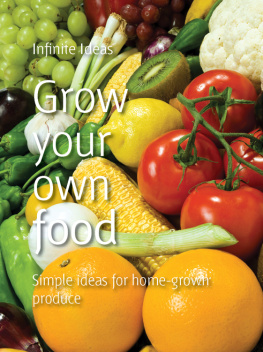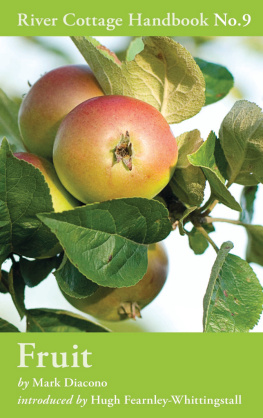Contents
Guide
GROW & COOK
The Ultimate Kitchen Garden Guide
MARK DIACONO


Copyright Mark Diacono 2015
Illustrations copyright Clover Robin 2019
The right of Mark Diacono to be identified as the Author of the Work has been asserted by him in accordance with the Copyright, Designs and Patents Act 1988.
Apart from any use permitted under UK copyright law, this publication may only be reproduced, stored, or transmitted, in any form, or by any means, with prior permission in writing of the publishers or, in the case of reprographic production, in accordance with the terms of licences issued by the Copyright Licensing Agency.
First published in 2015 as THE NEW KITCHEN GARDEN by Saltyard Books
An imprint of John Murray Publishers
First published in paperback in 2020 as GROW & COOK by Headline Home
An imprint of Headline Publishing Group
First published as an Ebook in Great Britain
by Headline Publishing Group in 2020
Cataloguing in Publication Data is available from the British Library
Cover design by Caroline Young for Headline
Paperback ISBN 978 1 4722 6546 3
eISBN: 978 1 4722 7017 7
HEADLINE PUBLISHING GROUP
An Hachette UK Company
Carmelite House
50 Victoria Embankment
London EC4Y 0DZ
www.headline.co.uk
www.hachette.co.uk
Table of Contents
About the Author

Mark Diacono is lucky enough to spend most of his time eating, growing, writing and talking about food. He is an award-winning writer and photographer and has written and/or photographed thirteen books, including A Year at Otter Farm (Andre Simon Food Book of the Year 2014), A Taste of the Unexpected (Guild of Food Writers Food Book of the Year 2011), The New Kitchen Garden (Garden Media Guild Book of the Year 2015), and his most recent book, Sour. His refreshing approach to growing unusual and forgotten food along with the best of the familiar has done much to inspire a new generation of gardeners and cooks. As well as his books, Mark has written for the weekend broadsheets, and magazines as diverse as National Geographic, Country Life and Delicious. Mark was involved with River Cottage in the early days, appearing in the TV series and writing three of the River Cottage
Handbook series.
Twitter: @MarkDiacono
Instagram: @mark_diacono
Praise
An endless selection of delicious produce you can plant, grow and cook with. Raymond Blanc, OBE
Diacono wants new gardeners to learn to think for themselves and build their own strategies from the many modes of food production. Irish Sunday Times
Visionary and useful, this is altogether an inspiring book. The Lady
Marks writing style is conversational and engaging, hes deeply knowledgeable, yet hes low-key and modest. Hes can-do and accessible without ever being patronising. English Garden
The New Kitchen Garden doesnt begin with the usual plan of an allotment quartered into beds awaiting their rotation, it starts by asking what you need. Sunday Mirror Book of the Week
About the Book
Create your own delicious edible garden at home with this A-Z Growing Guide!
More and more people are being inspired to grow a little of what they eat at home. But while starting your own kitchen garden may seem like a daunting task at first, Grow & Cook makes easy. Whether you are new to gardening and only have a small window box or are experienced with the space to experiment, this user-friendly handbook will inspire and guide you.
Award-winning author and gardener, Mark Diacono has included over 180 edible varieties of fruit, nuts, herbs, spices and vegetables in this A-Z guide of what to grow and how to cook it. Every variety includes a wealth of information on when to sow, growing tips, potential problems, harvesting and much more.
The essential pocket handbook for modern gardeners.
For my Mum
INTRODUCTION
Grow at least a little of what you eat, just once. You deserve it. Life is busy, I know, and time is precious, but dont let too much time pass before you taste a sun-warmed tomato plucked from a plant you grew yourself; before you enjoy a salad of homegrown leaves; or know the pleasure of an apple, a peach or a handful of strawberries eaten straight from the plant. Even if you do it only once, it will enrich your fleeting time on this planet. You dont even need to commit to an allotment or a garden: create a collection of herbs by the door and though they ask little of you, they can change every meal you eat.
Look over a few garden walls or into an allotment and youll see that most of the space given over to edibles is dedicated to a few familiar foods. Potatoes, carrots, onions, various cabbages and salad leaves dominate, and very fine they are too. And yet they are a slender selection from the many possibilities for your kitchen garden. This book is an encouragement to take a wider look, to consider all the finest flavours I know. Whether your garden is a bunch of containers, a small patch of earth, a forest garden or a smallholding, youll find a wealth of delicious possibilities from which to choose.
To get the most from your garden, let go of all preconceptions of what you might grow. Imagine no one had ever grown any of their own food, and that an all-powerful deity appeared in the sky and bestowed upon each of us a little outdoor space in which we may grow anything wed like to eat. Faced with all this beautiful possibility the prospect of our favourite flavours and textures, of tastes and experiences we may never have tried but that take our fancy, and only the climate and our imagination to limit us what would you choose to grow?
Im optimistic enough to think it unlikely that, fuelled by the excitement and freshness of new possibilities, we would dedicate most of our garden to the cheapest, most disease-prone, most widely available food there is. With a clean mental slate and no history of gardening to dominate our thinking, we would almost certainly come up with different choices to our neighbours. I love sprouts, No. 46 loathes them; the family over the road wants a mini fruit forest, their neighbour favours a sea of herbs. I like to think that we would display a touch of individualism, that our choices and hence our garden would reflect our personality, perhaps even be one of the ways in which we allow that self to develop. A garden will do that for you, if you let it.
If this book does one thing, I hope it will uncurl your fingers from familiar choices. Those familiars may be perfectly fantastic ideal for you even but let them alone for now: theyre not going anywhere. You can always grasp them later if theyre still the ones you want.
This book is also an invitation to ask yourself a few questions. Do you want to grow expensive food rather than cheap? Is flavour or yield more important to you? What is your favourite food? How much time do you want to commit? Are you open to the possibility that you might be embarking on something far more rewarding, far more happy-making, far more profoundly important even than eating delicious, nourishing meals?

